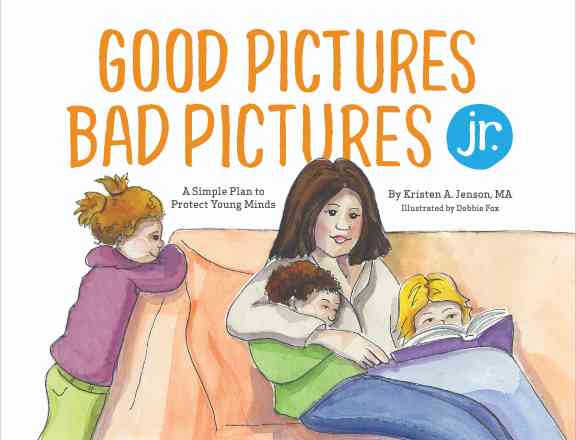.jpg)
.jpg)
5 Easy Tricks to Manage Screen Time and Get a Happier Family, Too
This article was originally published on 4/23/2019 and updated on 9/9/2023
A lot of parents worry about the amount of time their child spends using screens. In fact, a 2023 survey of over 2,000 Americans reported that the number one concern of parents is overuse of technology (up 14% from 2018).
.jpg)
Wendy Christensen, a mom of six kids, told the Deseret News:
"You hear all the time ... limit the screen time, limit the screen time … I always smile and nod, and we try, but now that they're older, I so wish I had been a lot stricter with it when they were little because the older they get the more they want it."
One reason I try to limit my daughter’s screen time is because I see headlines like this one: More screen time for toddlers is tied to poorer development later, study says. Or this one: More Screen Time Linked to Delayed Development in Babies. And this one: Excessive screen time during infancy may be linked to lower cognitive skills later in childhood.
Researchers found that children ages 2 and 3 who viewed 2-3 hours of screen time each day scored lower on developmental tests at ages 3 and 5.
You see, studies are starting to answer the question that has been on every parent’s mind: what are the effects of screen time on kids?
Another study revealed that 5-year-olds who spent more than 2 hours of screen time each day were 5.9 times more likely to have problems with paying attention and 7.7 times more likely to have symptoms of ADHD.
Related: What is Screen Time Really Doing to your Kid's Brain?
1. Follow screen time recommendations from the experts
Screen time includes viewing or interacting with television, smart phones, tablets, computers, video game devices, virtual reality, and any other digital media device.
In 2021, the American Academy of Pediatrics published updated Children and Media Tips - yay for current information! If you are wondering how to reduce the effects of screen time on kids, do your best to follow these recommendations:

2. Embrace enjoying screen time together
Notice the recommendations are very focused on people interacting with media together. Author Anya Kamenetz writes,
“If our only intervention as parents is to limit screen time ... we’re not preparing our kids to navigate the world.” (The Art of Screen Time, p. 62).
How can you do this? Here are some examples.
- For young children, when the big letter C comes on the screen, point to the couch and say, “Couch starts with C.”
- Name emotions displayed by characters in television shows.
Your little one learns when you connect what they see and hear on a screen to their environment.
For older children, play video games and watch their favorite TV shows with them. And look for important teaching opportunities related to pornography, digital citizenship, or online safety.
Related: Swimming Upstream: How to Share Your Family's Media Standards with Other Parents
[[CTA]]
3. Create a plan to reduce the effects of screen time on kids
Whichever stage of life your family is at, you can benefit from creating a screen time plan. The American Academy of Pediatrics has put together this handy tool to do just that with the Family-Media Use Plan.
Here are some things to keep in mind as you create screen time boundaries:
- The light from screens makes it harder to fall asleep. Some families find it helpful to put away devices an hour before bedtime, and to keep screens out of bedrooms entirely. (Yes, they still make old-fashioned alarm clocks).
- Schedule time for physical activity and outdoor play.
- Choose times of the day when everyone is unplugged - dinner is a popular one.
- Some families find that using a checklist helps kids read, enjoy other hobbies, do chores, and do homework before screen time is allowed.
- Update your plan as your kids get older. Around age 8 or 9, your child can help create the plan. Here are some parent-tested systems to consider.
4. Review your own screen time habits
It might not come as a big surprise that the way parents use screens is one of the biggest predictors of children’s use . If you don’t want your kid on a phone or tablet all the time, you can’t be either. If you want your child to spend time outside, make sure they see you out there too!
Anya Kamenetz gives this suggestion:
“Whenever you pick up your phone in front of your kids, narrate to them what it is you’re doing to create some accountability and transparency.”
Try it! I did - and you know what? It worked! When I picked up my phone to do something unimportant, I put it back down again and gave my focus to my child. When I picked up my phone to do something important, I FELT LESS GUILT.
Explaining to my child, “I need to text daddy,” is a great moment of connection! Soon I’m sure my daughter will want to get involved in texting her dad or adding something to our grocery list. Bring it on!
5. Use tech to connect
Everyone has seen (or been) that couple at a restaurant, looking at their phones instead of talking to each other. Sometimes screens can make us feel like we’re separated by a brick wall.
Here’s a challenge for you - the next time your child asks a random question about the solar system, stop what you’re doing, give your child attention and time, and pull out your smartphone to find answers to her questions together. Instead of creating a barrier between you and your child, your phone can send the message, you matter to me.
As you think about your family’s screen time patterns this week, ask yourself … Are my family’s screen time habits helping us strengthen relationships, or are we often isolated during screen time?
Make a couple of changes in your home to help everyone’s relationship with technology be a little more balanced, and everyone’s relationship with each other will become stronger.
.jpg)


Good Pictures Bad Pictures Jr.
“I highly recommend this book to all people with children. A must have for all parents!” —Amazon Review
.jpg)
.jpg)






